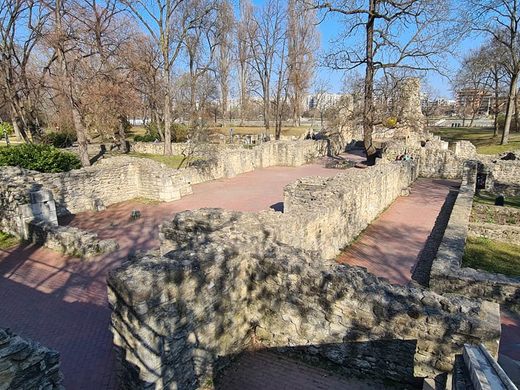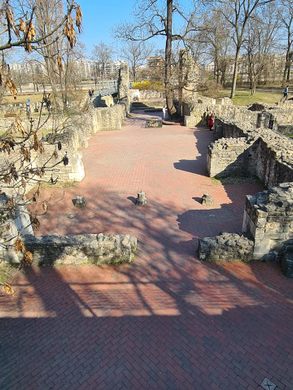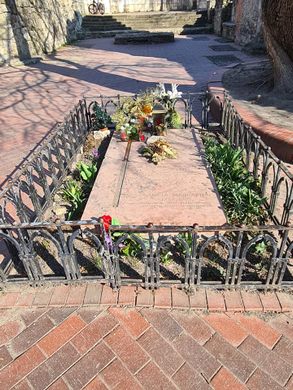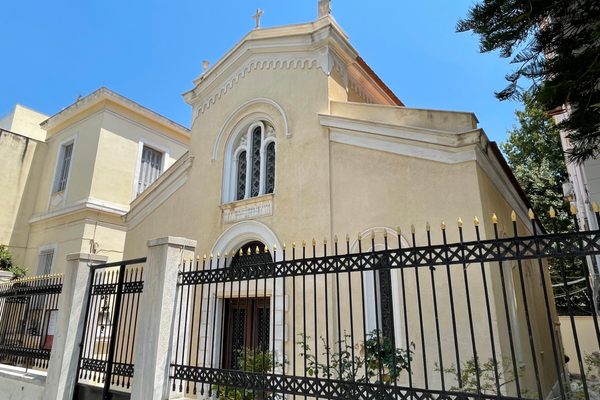AO Edited
Dominican Convent and Saint Margret's Resting Place
On a teardrop-shaped island in the Danube, the ruins of a convent and the final resting place of a saint.
Margaret Island, or Margit-sziget in Hungarian, is a 225-acre teardrop-shaped island in the Danube River in the middle of what is now Budapest. The island provides an oasis of green bordered on either side by the bustling city.
The island is named after Margit, the beautiful daughter of the 13th-century king, Béla IV. According to the legend, King Béla IV promised to commit his daughter to a life of devotion in a nunnery if the Mongols were successfully driven from the land and the city survived. The Mongols were defeated and Margit joined the convent.
However, Margit grew up to be a beautiful young girl and many European royals expressed interest in marrying her. It is said that King Béla IV now saw her as a strategic advantage, an opportunity to strengthen Hungary’s alliances with other powerful royal families. Margit however refused to become engaged to a Polish duke, telling her parents that she would rather die than get married.
By age 18, Margit had taken the veil and become a nun, but King Béla IV planned to ask the Pope to annul her vows so she could marry King Ottokár II of Bohemia, who was another European royal smitten by her beauty. Again Margit refused and remained true to her vows.
Rejecting a life of royal luxury, Margit is said to have walked barefoot and insisted on being given the lowliest tasks in the convent. She spent her time scouring pots and pans, scrubbing rough stone floors, and cleaning latrines. During her time as a nun, many miracles were attributed to Margit, she is said to have had a knack for curing lepers among other miraculous healings. Canonized in 1943, St Margit commands something of a cult following in Hungary.
A red marble sepulchre cover surrounded by a wrought-iron grille marks her original resting place within the ruins. Her story still resonates with Hungarians today and her resting place is often covered with fresh flowers and it is not unusual to discover people in silent prayer at the location. A short distance southeast of the sepulchre there’s a much-visited brick shrine with votives thanking St Margit for various favors and cures.
There’s also a viewpoint overlooking the ruins, it is worth climbing up onto the metal structure to get a view over the remains spread out below you.
Know Before You Go
Not to be confused with the nearby Franciscan church!
Community Contributors
Added by
Edited by
Plan Your Trip
The Atlas Obscura Podcast is Back!






















Follow us on Twitter to get the latest on the world's hidden wonders.
Like us on Facebook to get the latest on the world's hidden wonders.
Follow us on Twitter Like us on Facebook